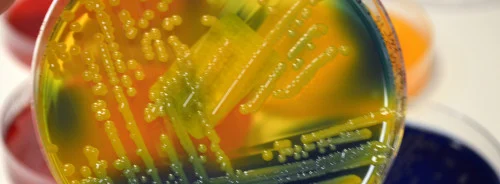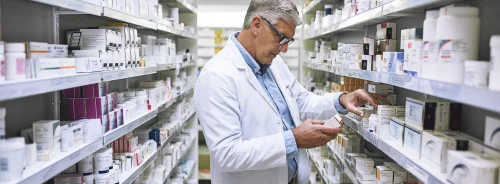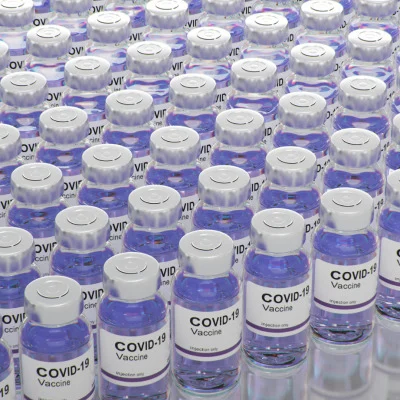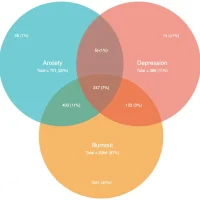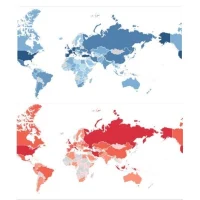Over the last week the COVID-19 vaccine landscape has once again changed drastically, with the use of J&J’s Janssen suspended in many countries and new players attracting more attention.
You might also like: Shortages of COVID-19 vaccine supplies are being felt globally, not excluding the EU and the UK. Do companies fulfil their obligations and where will new manufacturing facilities be created?Learn more
As viral vector vaccines, AstraZeneca’s Vaxzevria and J&J’s Janssen, are facing suspensions around the world, the demand for mRNA shots from Pfizer-BioNTech and Moderna keeps surging.
Denmark last week became the first European country to drop
AZ’s vaccine altogether immediately attracting interest from several other countries,
such as the Czech Republic or Lithuania, to buy out the remaining doses from
Denmark. Since then, however, it has been reported that the AZ vaccination in
the country might resume on a voluntary basis. Norway public health regulator
has recommended against the use of the vaccine, while some other countries,
including France and Spain, are limiting it to certain age groups. At the same
time, numerous countries across the world are on the contrary lifting the AZ suspensions
and the blood clots phenomenon is being
investigated.
J&J found itself in a situation similar to AZ when
several cases of blood clotting had been reported. The U.S. administration has halted
the use of Janssen for the time being citing the “abundance of caution”, while the
European Medicines Agency is currently reviewing the thrombosis reports and is expected
to make an announcement later this week. Until then, several countries
including Greece and Norway, have put the vaccine rollout on hold. In the meantime,
Emergent BioSolutions plant in Baltimore, U.S., taken over by J&J for the
vaccine manufacturing has been ordered
to suspend its operations by the FDA.
Moderna has announced
that it is cutting deliveries across the world including to the EU, the UK and
Canada. This, combined with the pause of the J&J vaccine, led to Pfizer having
agreed
to increase deliveries to the U.S. and Europe with the latter expecting to
receive 100 million additional doses in 2021.
Russia meanwhile continues the expansion of its Sputnik V vaccine
deliveries across the world despite the recent highly politicised incidents
in Europe. The first doses are expected to soon arrive to India with the
country lifting up its import duties; Turkey and South Korea are reported to
have approved the manufacturing of the jab; while the production is already
being launched in Serbia. The vaccine is currently under
the EMA rolling review. Several European countries such as Hungary have granted
it the emergency use authorisation while others like Austria refuse to do so
prior to the EMA’s decision.
India, the world’s largest vaccine manufacturer is prioritising
inoculations domestically, while the Serum Institute of India that was licensed
to manufacture AstraZeneca’s and Novavax’s vaccines is facing shortages with
raw materials partly because of the U.S. administration’s banning
the exports back in late March. The launch of the Novavax vaccine (Coronavax),
initially planned in June, has been delayed
till September. Serum Institute has agreed to manufacture about 1 billion
Novavax doses in 2021. Meanwhile, J&J is reported
to have applied for permission to conduct phase-3 clinical trial of its vaccine
in India as well as import licence.
In China, Gao Fu, head of the Chinese Centres for Disease Control and Prevention, first admitted the efficacy of the country's Covid vaccines was low, noting a possibility of mixing vaccines to boost efficacy. He later, however, said his comments had been misinterpreted.
Chinese vaccine CoronaVac by Sinovac jab has only been fully
authorised for use by China, but the doses are being shipped around the world
to countries such as Indonesia, Malaysia, Pakistan, Brazil, Mexico, Turkey and
Ukraine as well as to Africa. Recently, Egypt has agreed with Sinovac
to manufacture up to 80 million doses a year domestically to be distributed in
Egypt and other African countries.
According to the Financial Times vaccination tracker,
as of 18 April 906,560,829 vaccination have been given based on the data from
212 locations. This is equal to 12 doses for every 100 people. Israel, Bahrain,
Chile and the U.S. are the leaders, having vaccinated from 55% (Israel) to
25.7% (USA) of their populations. In absolute terms, the US and China have
administered the highest number of doses, 209 million and 193 million
respectively. India ranks third, with more than 123 million.
Image credit: Kirill
Reznichenko via iStock


